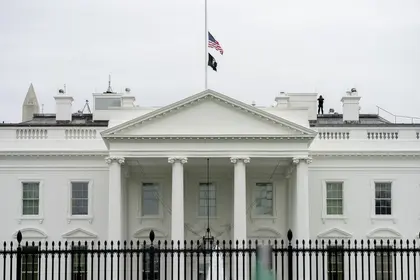The Biden administration is backing a proposed law that would enable the confiscation of at least some of the $300 billion frozen Russian assets to contribute to the reconstruction of Ukraine.
This is according to a Bloomberg report, which cites a November memo from the National Security Council to the Senate Foreign Relations Committee.
JOIN US ON TELEGRAM
Follow our coverage of the war on the @Kyivpost_official.
In response to this document, President Biden’s administration says it welcomed the proposal “in principle” to establish a bill that would allow it to confiscate the funds for this purpose.
“The bill would provide the authority needed for the executive branch to seize Russian sovereign assets for the benefit of Ukraine,” the NSC said in the memo, one of three such communications seen by Bloomberg News.
A senior US administration official told the news agency that this measure is seen as one of the tools that could be used to hold Russia accountable for the harm inflicted on Ukraine during the war.
The World Bank currently estimates that a minimum of $411 billion is required for the reconstruction of Ukraine.
While the National Security Council and the office of Ben Cardin, the head of the Senate Foreign Relations Committee, refrained from commenting, the State Department stated that, in collaboration with its G7 partners, the US government is exploring “all options consistent with US respective legal systems and international law to aid Ukraine in obtaining compensation from Russia.”

Russian Figure Skaters Reportedly Onboard Jet Crashed Over Washington
Since the onset of the full-scale war in Ukraine, Western nations froze approximately half of the gold and foreign exchange reserves of the Bank of Russia - amounting to about $300 billion - with most of these funds located in Europe.
Discussions on utilizing these assets have been ongoing among EU authorities since at least the autumn of 2022.
However, countries like Germany, France, and Belgium, have still been hesitant to take control of the assets. They have concerns centered on legal issues, particularly the protection that international law offers to sovereign assets.
In the summer of 2023, an EU special working group determined that there was no legal basis for such action.
Still, according to a recent Financial Times report, G7 nations are stepping up their efforts to reach a consensus on redirecting a portion of the $300 billion in frozen assets to Ukraine.
Some officials suggest that channeling these assets towards Ukraine could support its defense efforts, facilitate reconstruction, and encourage an end to the 21-month-old full-scale Russian invasion.
In recent weeks, as cited in the report, the United States has taken a firm stance during private discussions, emphasizing the viability of asset confiscation “in accordance with international law.”
In the US, a two-month-long debate persists over the allocation of a proposed $60 billion in aid to Ukraine. While the Biden administration supports the initiative, Congressional Republicans have withheld their support for the relevant bill.
You can also highlight the text and press Ctrl + Enter










